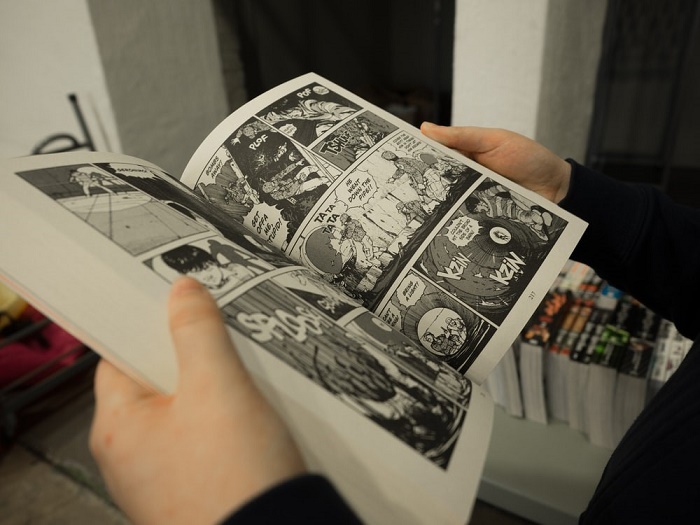How to Encourage Teens to Write More (And Why)

As if being a teenager weren’t hard enough. Teens are already a vulnerable group, even though most of them think they have life figured out.
Getting teens to use their voices when it means beating their own drum, looking different than their friends, or risking judgment can be like pulling teeth, for sure.
However, cultivating a desire and joy for writing is a skill that can stay with teens for life. Writing is not only a lovely and often healing creative pursuit, but writing well can also lead to better employment opportunities, or serve as a stand-alone career in itself.
Here are some key pointers to help cultivate, encourage, and support young people to develop their writing skills and enjoy writing through the tough and tumultuous teen years.
Reading leads to better writing

When’s the last time you checked on your teen’s reading level? Does your teen even enjoy reading?
Reading is the precursor to writing for many people. Most authors characterize themselves as word lovers from the very beginning.
If reading is a chore or a challenge for your teen, it’s likely writing creatively also may feel like a big mountain to climb as well.
Ensuring your teen does not have barriers to word-love is essential in growing a strong writing habit. You can request a teacher conference as a place to begin and then check with your school for additional resources or support if you uncover any overt or latent reading challenges.
Look for the signs of a budding writer

Does your teen enjoy keeping a journal? Do they often write notes in class? Are their text messages to you and their friends full of fun vocabulary words and witty sarcasm?
You may be raising a writer.
If your child doesn’t already take a writing course they love in school, you can still encourage their wordsmithery at home by asking them questions. And, we don’t mean the annoying questions like “What did you learn at school today?”
Try coming up with thought-provoking questions that can spark their imagination. If your kid is a sci-fi nerd, ask them to write a description of the space ship they would build or the crew they would command as a captain.
If your child loves fashion and make-up, have them design and describe (in writing) the salon or boutique they would open, and what kind of people they most want to serve.
Imitation is an excellent place to begin
Most of us soak up influence throughout our lives, and no more so than when we are teens. If your teen has a favorite book or author, encourage them to write a story the way their idol might do it.
Plagiarism is kind of okay here since your teen is likely playing with ideas and deciding what type of voice with which they want to write. One useful exercise is to take a line or two from a favorite book and build a different story from the inspiration.
Once your teen gets going with an idea, they can re-tool any copied material if they choose to put it out into the world publicly. It’s also essential to list resources and to credit accurately the authors who inspired your teen’s work.

What about a song?
Maybe your angsty teenager loves love and emotional turmoil. Or, they got pancaked by their last break-up. Perhaps they want an outlet for the turbulent teen potholes of belonging and finding their identity.
Poetry and song lyrics are often healing, emotive, creative, and beautiful, all at once. Encourage your teen to write their feelings in ways that feel true and expressive.
Who knows? You may be the parents of the next Taylor Swift or Shawn Mendez.
Comics count as literature

If your teen is into role-playing games, video games, and comics, encouraging him or her to write their own comic story or graphic novel can be a super entre into the writing world.
This kind of writing is quick, concise, and visual. So, if your teen likes to tell stories through pictures more so than words, comic writing and drawing can handily fill a creative void.
Critique without being critical
It takes a load of courage to spill your heart and guts into words on a page. That said, if your teen allows you to see their writing, measure your response carefully.
Your teen probably wants you to tell them how amazing their material is, even if the grammar, syntax, and spelling are less than compelling. Find something in their piece that you genuinely love and tell them you’re proud.
Then, you might try asking some questions about your teen’s writing intent. They should go like this:
“Wow! I’m so glad you’re doing something new! Tell me, what made you write this?”
“How does this project help you? What was fun about it?”
“Would you like to do anything more with it? Does it feel complete to you?”
Your teen’s replies can help guide your next steps as a parent. Writing may be a cathartic hobby for your child, or he or she may want to explore writing more deeply.
Resist the urge to force formal writing training on your teen unless they ask for it. And only give technical feedback when your teen requests it. This is their story, not yours.
Most of all, enjoy your teen’s writing

Believe it or not, parents still hold a lot of sway with their teens. Parents who appreciate a teen who writes are doing more favors for their fledgling authors than any class or formalized program.
Creativity often flows from both necessity and ignorance. If you throw too many rules at a teen around writing when they first pick up their pencils, they will never fully trust themselves and their voices.
Rules are for later after they’ve had a chance to throw all the words on paper and see which ones they like the most. And even then, some of the best material comes out as if by magic, where no rules apply.
Teens who write are teens who succeed
Finally, writing is one way we can fully express ourselves. When we write, we unleash our power and we grow to trust in ourselves. Believe in and encourage your teen to write, and then step back enough to let them take charge. Your teen will do the rest.






















